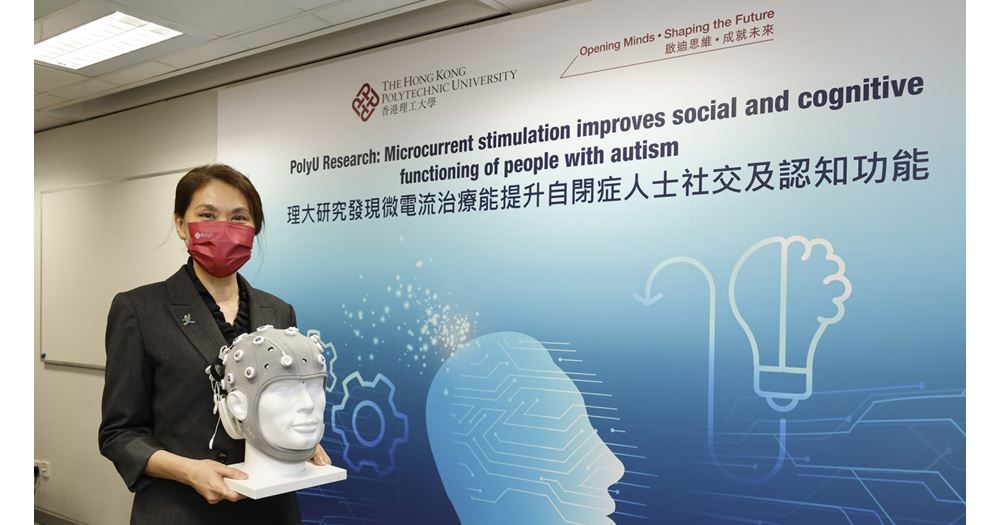Autism spectrum disorder (ASD) is a neurodevelopmental disorder common among children. While the exact cause and cure remain unclear, a PolyU research team integrated clinical, neuropsychological, and neurophysiological research methods to examine the effects of transcranial direct current stimulation (tDCS) treatment on brain function in adolescents and young adults with autism.Results showed that tDCS paired with concurrent cognitive remediation training could effectively improve their social communication skills and cognitive function.
Dr Yvonne Han, Associate Professor from PolyU’s Department of Rehabilitation Sciences, who led the project, says that tDCS is a non-invasive brain stimulation technique for treating major neuropsychiatric disorders.
The findings of the study, derived from more than 150 ASD patients aged 14 to 21 years old, confirmed and expanded on previous investigations that reported the positive effects of tDCS.
“Most importantly, the findings demonstrated that multisession tDCS, alongside concurrent cognitive remediation training, can significantly reduce core symptoms and promote social functioning in teenagers and young adults with autism. No serious side effects were observed in the study,” Dr Han said.
Moving forward, the research team plans to further study how to incorporate machine learning to predict the treatment outcomes of tDCS, the feasibility of home microcurrent stimulation treatment, and the effectiveness of continuous treatment.



